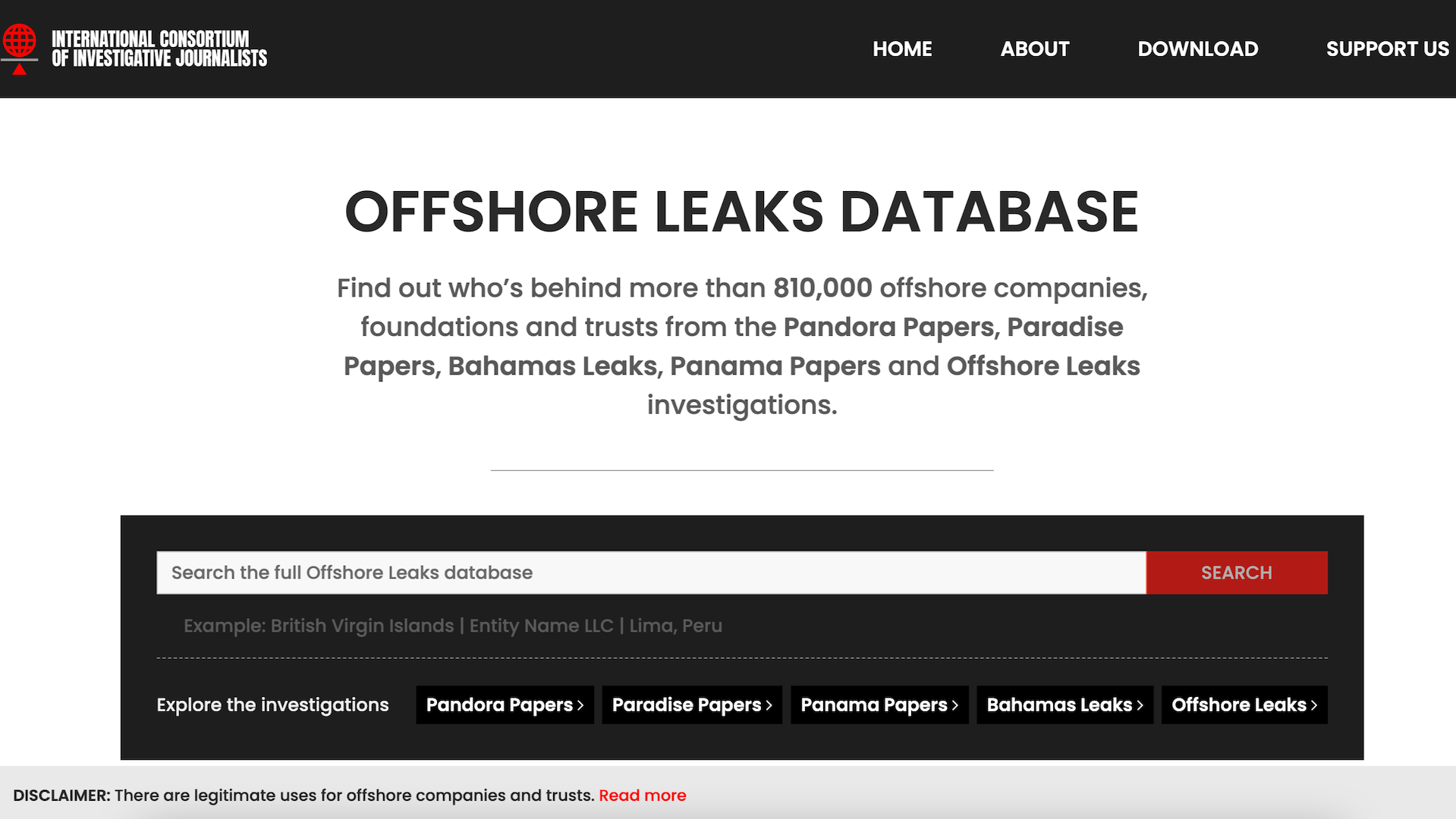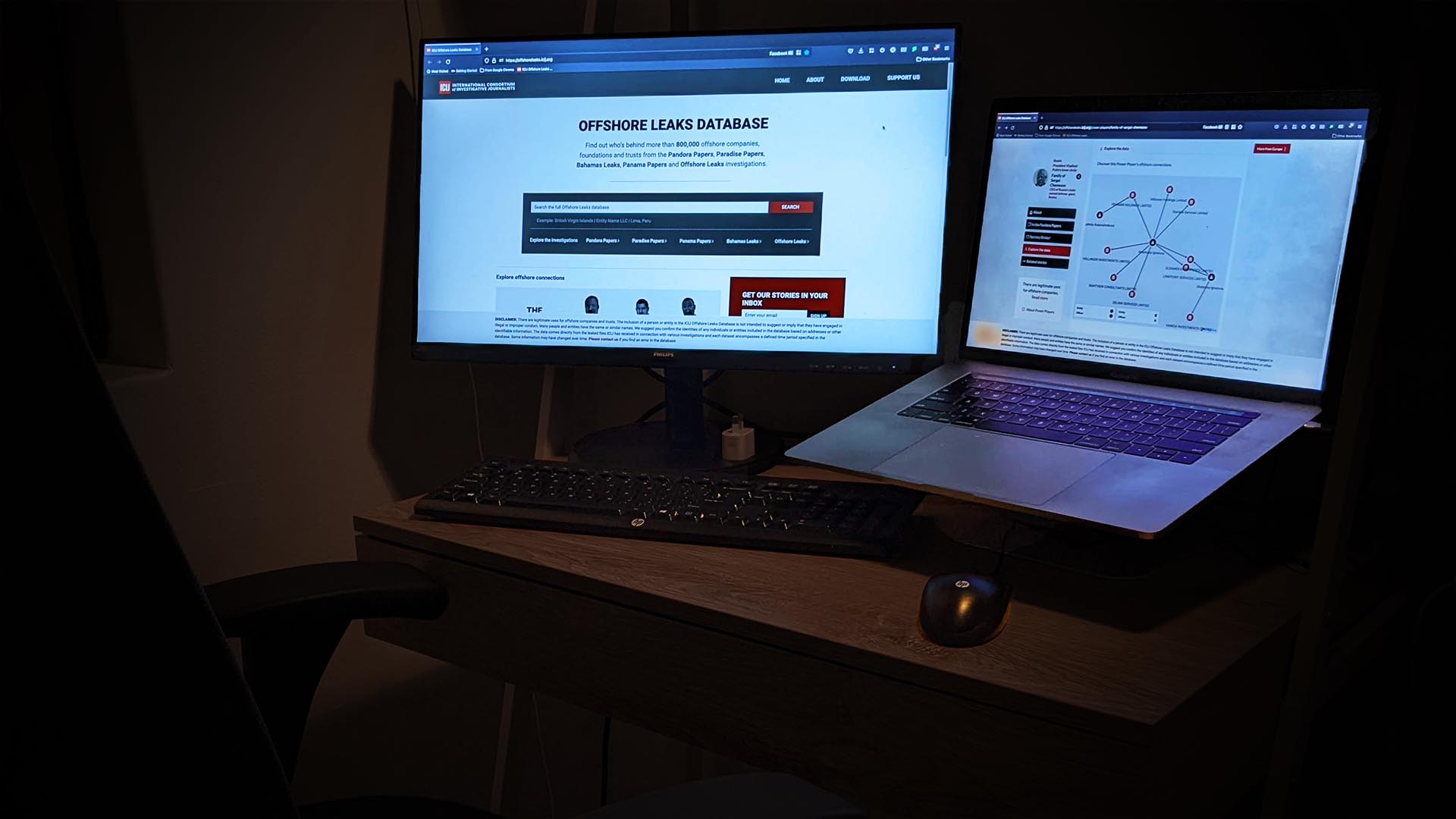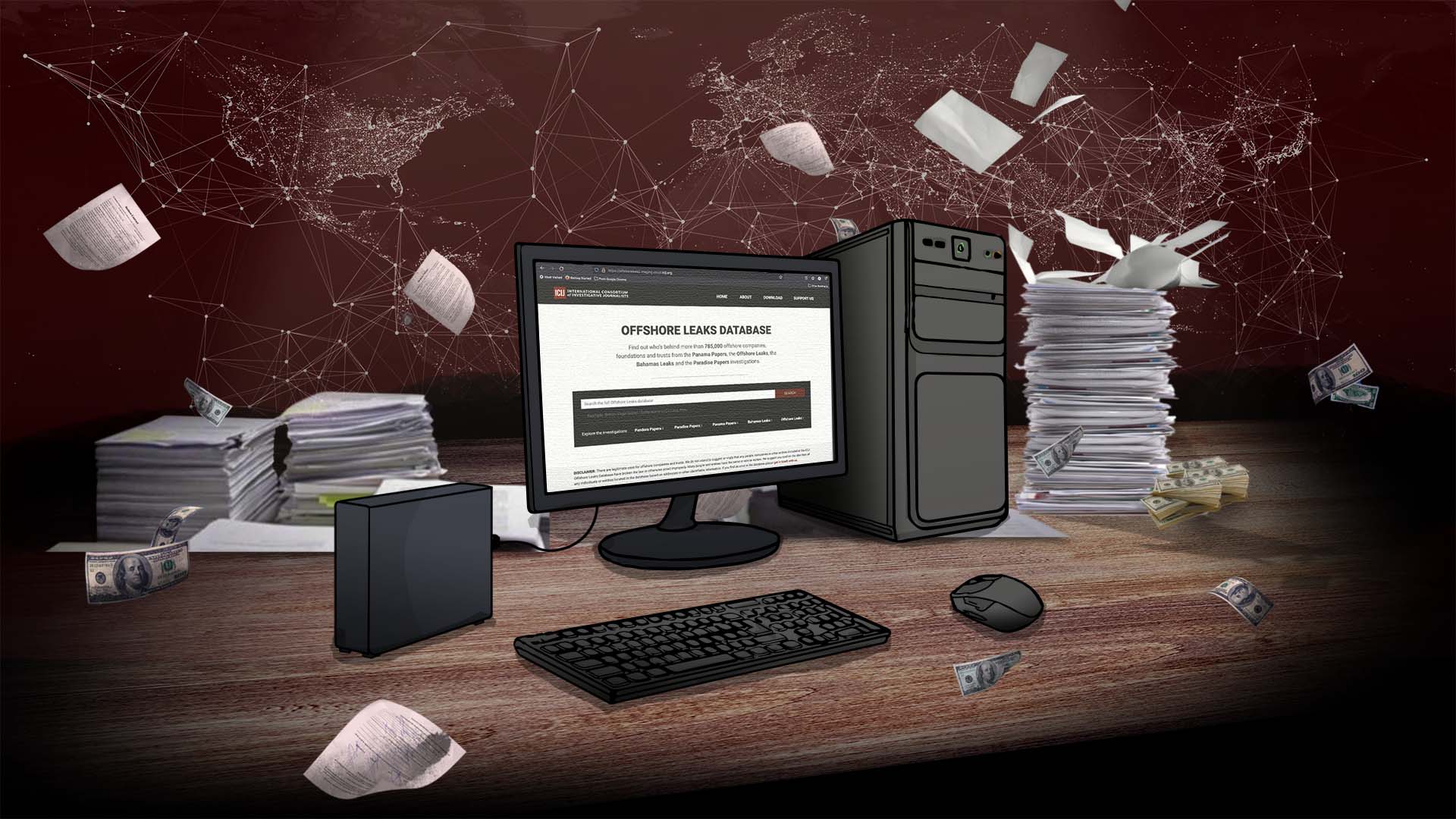For years, researchers, financial regulators and journalists worldwide have turned to the International Consortium of Investigative Journalists’ Offshore Leaks database to track the sprawling, hidden networks of global offshore finance.
Now, a new Application Programming Interface has made the database — of more than 810,000 offshore entities in more than 200 countries — even more powerful and accessible.
Funded by the Deutsche Gesellschaft für Internationale Zusammenarbeit, a German development agency promoting international cooperation, the API allows real-time data sharing and tracking of beneficial ownership data by introducing a reconciliation feature that helps users match their own data, such as names, addresses and corporate entities, with Offshore Leaks data.
“Our goal was to build a tool that allows users to seamlessly match and enrich their own data with ours, unlocking new possibilities for uncovering hidden connections in global finance,” said Pierre Romera Zhang, ICIJ’s chief technology officer.
Automated processing seamlessly enriches datasets, improves accuracy and enables tracing of complex, cross-border financial transactions, Romera Zhang said. For anyone working on cases involving multiple offshore entities, the tool accelerates investigations by integrating external data sources.
This innovation is part of ICIJ’s broader commitment to leveraging technology to drive transparency and accountability. From secure collaborative platforms that connect reporters around the globe to large-scale data analysis techniques used in investigations like the Panama Papers and Pandora Papers, ICIJ has consistently pushed technological boundaries.
With nearly a quarter million visitors each month, the Offshore Leaks database has already proven valuable to users around the world.
“For anyone working on complex cases with multiple offshore entities, this API will enable automated data reconciliation and streaming investigations by integrating data from a wider range of sources,” Romera Zhang said.
The API was designed to serve a wide range of users while remaining adaptable as technology evolves.
For ICIJ Executive Director Gerard Ryle, the API marks a key evolution in the non-profit news organization’s mission to ensure that essential information is accessible to all, empowering citizens, journalists and institutions to hold power to account.
“We believe that access to reliable information is a fundamental right — and essential for the health of democracy,” Ryle said. “With this API, we’re not just uncovering corruption; we’re giving others the tools to do it, too.”



